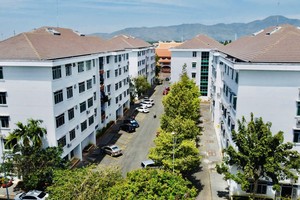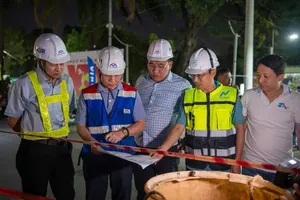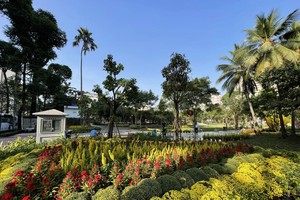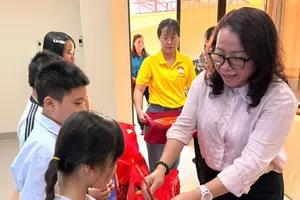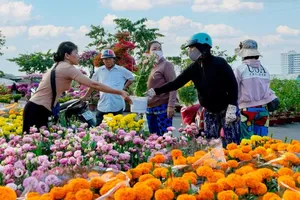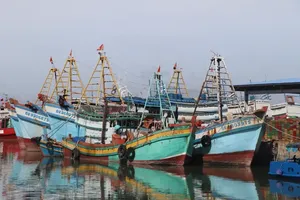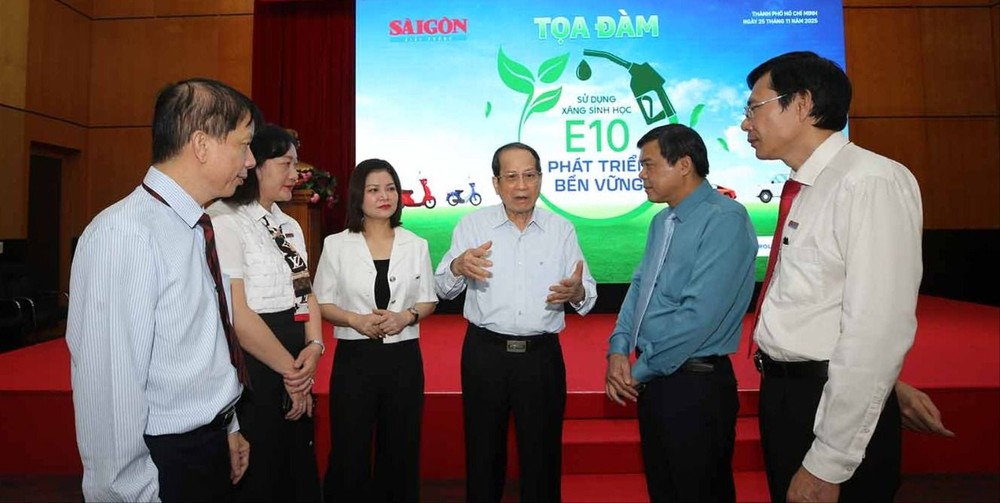
In his opening remarks at the seminar, Acting Editor-in-Chief of Sai Gon Giai Phong Newspaper, journalist Nguyen Khac Van, noted that Vietnam’s energy-related emissions in 2023 were estimated at 275 million tons of CO₂, an increase of nearly 3 percent compared to the previous year.
To achieve the net-zero emissions target by 2050, the Government has introduced and implemented a series of policies, including the National Strategy on Climate Change, Power Plan VIII, the carbon market roadmap, energy-saving programs, and mechanisms to gradually reduce the use of conventional fuels in transportation. A key initiative is the development and use of E10 biofuel. Since August 2025, Vietnam National Petroleum Group (Petrolimex) and PetroVietnam Oil Corporation (PVOIL) have piloted E10 distribution in Ho Chi Minh City, Hanoi, Hai Phong, Da Nang, and Quang Ngai.
After just three months, E10 production in several localities increased by 12–18 percent, reflecting growing consumer confidence in this green fuel. E10 helps reduce CO₂ emissions by 3–7 percent while also promoting the domestic production of ethanol from agricultural products.
Building on these results, the Ministry of Industry and Trade issued Circular 50/2025, mandating that from June 1, 2026, all unleaded gasoline on the market must be blended as E10. Concurrently, the Ministry of Construction is finalizing the Vietnam Corporate Average Fuel Consumption (CAFC) standard, aiming to limit fuel consumption for passenger cars to a maximum of 4.83 liters per 100 km by 2030.
Mr. Nguyen Khac Van emphasized that these policies demonstrate a strong commitment to building a greener, more energy-efficient, and environmentally friendly transportation system.
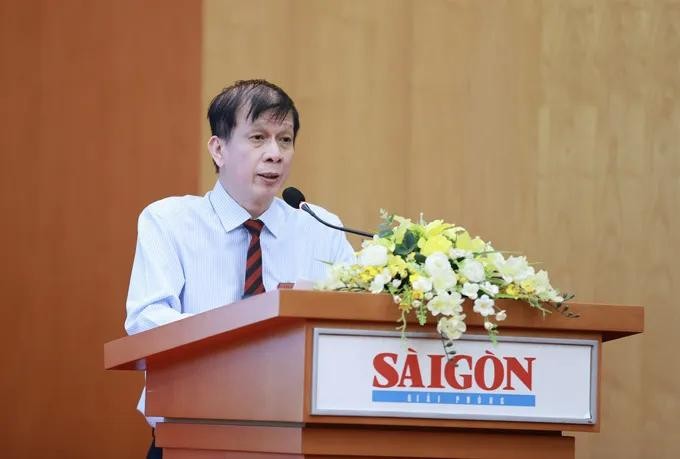
Associate Professor Dr. Ngo Tri Long, former director of the Institute for Price and Market Research under the Ministry of Finance, stressed that the use of E10 gasoline addresses three challenges at once, including strengthening energy security by reducing fuel imports, creating circular economic value through linking agriculture with the processing industry, and cutting emissions in line with Vietnam’s climate commitments.
He noted that starting June 1, 2026, all unleaded gasoline (as defined under current national technical standards) must be blended into E10 for use in gasoline engines nationwide. In terms of infrastructure capacity, major fuel distributors such as Petrolimex, PVOIL, Binh Son Refining and Petrochemical Joint Stock Company (BSR), and Ho Chi Minh City Petroleum Single-Member Limited Liability Company (Saigon Petro) have affirmed their ability to blend and supply E10 across the country—meeting the necessary and sufficient conditions for transitioning to the new fuel standard.
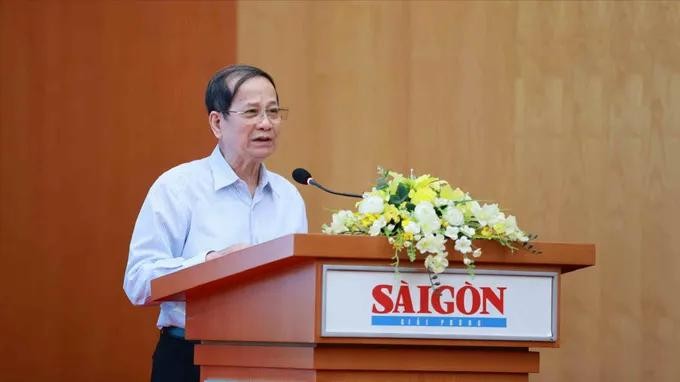
At the seminar, Dr. Giang Chan Tay, Director of Boi Ngoc One-Member Co., Ltd., proposed several recommendations to the Ministry of Industry and Trade, including adjusting the allowable loss rate specifically for E10 to reflect its volatile characteristics and Vietnam’s climatic conditions and recalculating the base price to include a mechanism that compensates retailers for evaporation losses, either through discounts or commissions similar to the calculation of fixed profit margins, but in this case designed to offset actual fuel loss.
He also proposed that the Ministry of Industry and Trade request Government approval to extend the expanded pilot phase within the public sector through June 2026. The aim is to assess actual fuel losses to inform support policies, evaluate the safety and performance of E10 gasoline, gather user feedback on fuel quality, and develop a suitable pricing framework. At the same time, he emphasized the need for reasonable support policies for fuel retail enterprises.
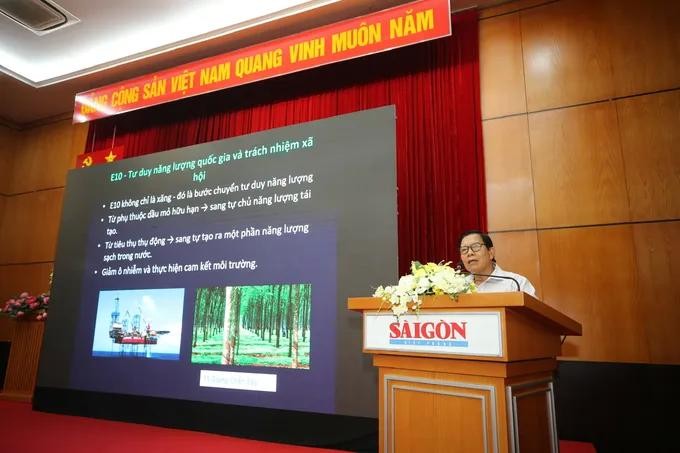
According to Associate Professor Dr. Van Dinh Son Tho of Hanoi University of Science and Technology, Ho Chi Minh City consumes roughly 7,000 m³ of petroleum products per day, equivalent to 2.5 million tons per year, to fuel 8.5 million motorbikes, one million automobiles of various types, 2,200 buses, and 13,300 taxis. This level of consumption generates substantial air pollution.
According to data on emissions from the transport sector in Ho Chi Minh City in 2019, pollutants included 429,000 tons of CO, 146,000 tons of hydrocarbons (HC), 70,000 tons of Nitrogen Oxides (NOx), 18,000 tons of particulate matter (PM), and 1,000 tons of SO₂.
To address pollution, the Government has issued numerous decrees, circulars, and action programs related to green energy transition and the reduction of carbon and methane emissions in the transport sector. Among these is Circular 50/2025/TT-BCT from the Ministry of Industry and Trade, which sets the roadmap for applying biofuel blending ratios, mandating nationwide use of E10 biofuel from June 1, 2026.
Additionally, the Ho Chi Minh City People’s Committee has issued Document No. 2846, calling for urgent measures to control and mitigate environmental pollution across the city.
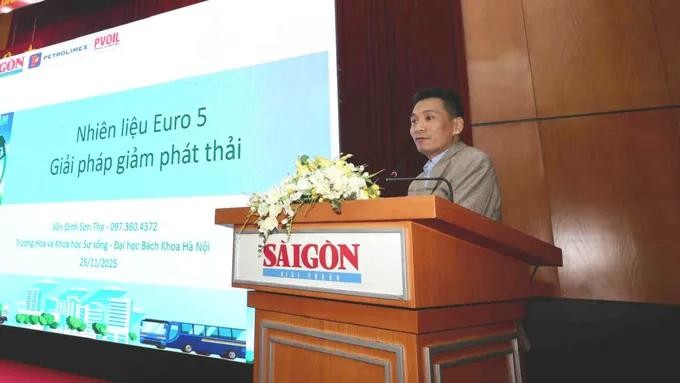
According to Ms. Nguyen Thuy Hien, Deputy Director General of the Agency for Domestic Market Surveillance and Development, the Ministry of Industry and Trade believes that the successful implementation of Circular 50 will require clear direction from the Government and strong coordination among relevant agencies. The Ministry has submitted to the Government a technical guideline on fuel blending. As the lead agency, the Ministry of Industry and Trade will guide enterprises in ensuring fuel supply during the transition, support businesses in pricing, and facilitate investment projects related to energy development.
In addition, the Ministry has proposed that other ministries and agencies, including the Ministry of Science and Technology, the Ministry of Agriculture and Environment, and the Ministry of Science and Technology, finalize standards for E5 and E10 gasoline to ensure proper compliance by enterprises; adjust environmental tax calculations; review and guide farmers in establishing raw-material zones; and strengthen public communication to encourage the use of E10 fuel.
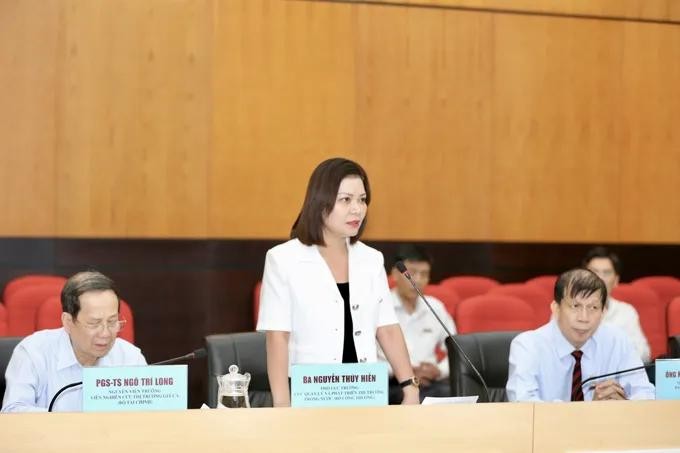
Mr. Le Thanh Minh, Deputy Director of the Ho Chi Minh City Department of Science and Technology, stated that the department will coordinate with other agencies, such as the Department of Industry and Trade, to monitor the quality of biofuels, ensuring the highest safety and quality standards for consumers.
In addition, the department actively contributes technical input and collaborates with research centers, including universities and research institutes, to develop new technologies in ethanol production, securing raw materials for biofuel. Notably, the department will also work with scientists and media organizations to strengthen public communication, helping consumers understand and confidently use E10 gasoline.
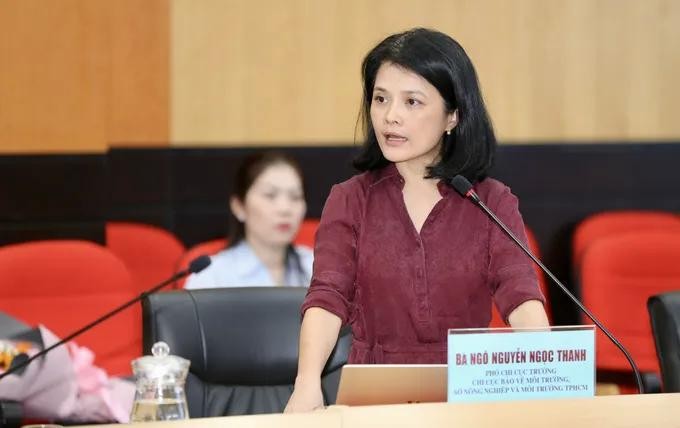
Ms. Ngo Nguyen Ngoc Thanh, Deputy Director of the Ho Chi Minh City Environmental Protection Sub-Department under the Department of Agriculture and Environment, stated that air quality monitoring results indicate that air pollution in the city is primarily related to particulate matter.
The main sources of air pollution in Ho Chi Minh City have been identified as road traffic, industrial production, and construction activities, with road traffic being the primary contributor, especially in urban areas.
Ms. Thanh also noted that the Department of Agriculture and Environment has developed an action plan for 2026–2030, with a vision toward 2050, to address air pollution and manage air quality. The plan covers not only transportation but also all related sectors, including agriculture, industry, construction, waste management, and street sanitation, with the goal of reducing air pollution and ensuring air quality remains at safe levels for public health.
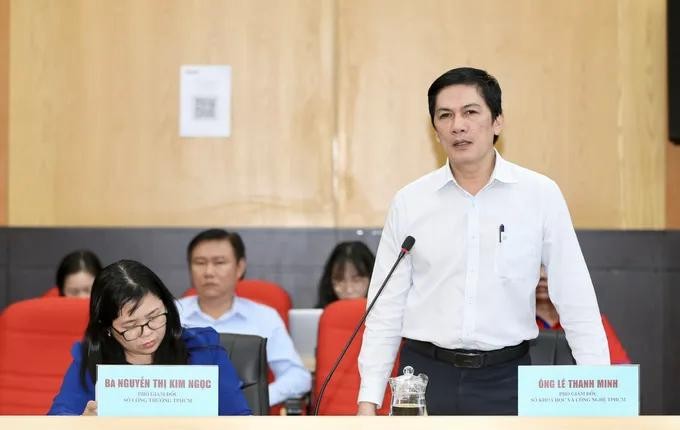
In her concluding remarks at the seminar, Ms. Nguyen Thuy Hien, Deputy Director General of the Agency for Domestic Market Surveillance and Development, stated that the Ministry will take into account the feedback shared during the discussion to provide further guidance and will actively coordinate with other ministries to develop policies that better support businesses during implementation. She added that government agencies will also intensify public communication to ensure the successful nationwide rollout of E10 biofuel in June 2026.
However, she emphasized that for E10 to achieve its full potential, close coordination among ministries, strong commitment from the Ministry of Industry and Trade, and proactive engagement from enterprises are all essential. Only with synchronized efforts from all stakeholders can the implementation of E10 reach its maximum effectiveness. She affirmed that the rollout of E10 biofuel represents a key foundation in Vietnam’s green energy transition journey.
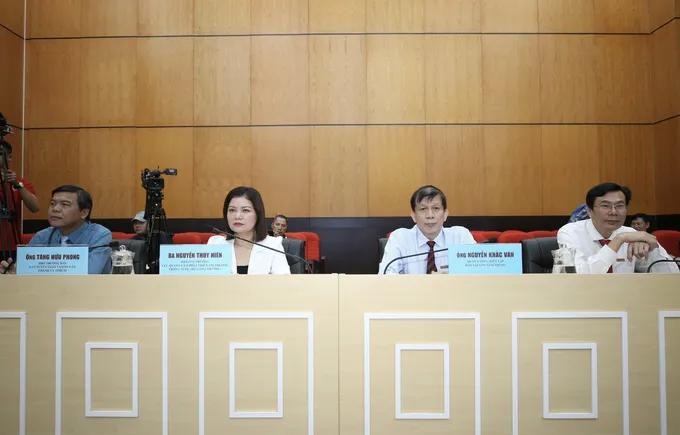
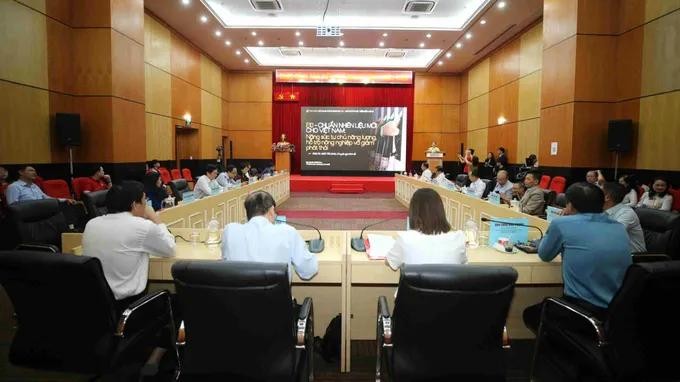
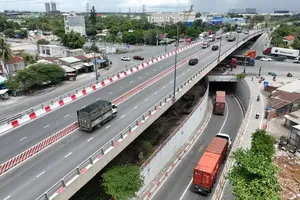
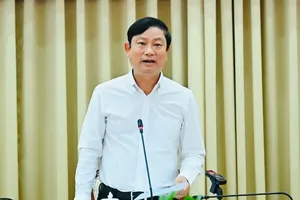
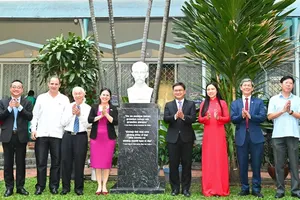

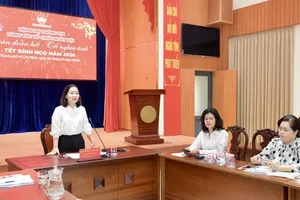
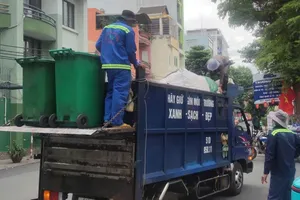
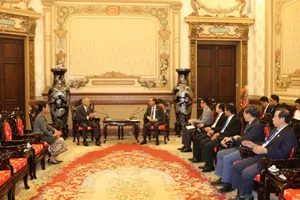
)



